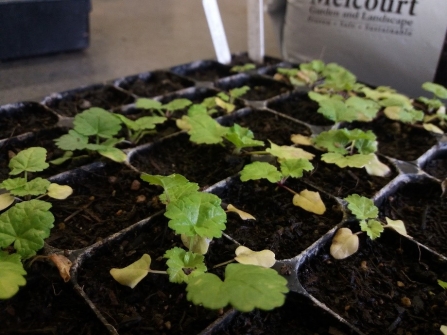Conservation Officer, Mark Schofield, has been busy collecting seeds from wildflowers across Lincolnshire. Using a careful approach to selecting which flowers to collect from he has created a bank of seeds from which to grow wildflowers in a controlled environment. By enlisting the help of the Horticultural Unit Manager, Andy Moore at Riseholme College and gaining permission to use an unused polytunnel, Mark has created a space for seed propagation.
Mark has organised regular meet-ups at the college on Wednesday afternoons, to which the public are invited to offer their time. Simon and I have attended some of these sessions which has given us a great opportunity to meet local people with similar values and hear about their opinions on many subjects – often political and environmentally based!
At these events we are given basic instructions on how to best fill our seed trays with peat-free compost, and how to evenly distribute the seeds we are given. Just some of the flowers we have propagated include the rare tall thrift, betony, lady’s bedstraw and musk mallow.
This week the task was slightly different – seeds we had planted a few weeks before, now needed to be moved into larger pots. Andy showed us again how to correctly fill these pots and how to carefully transfer the plant plugs into them without damaging the root system or compacting the compost too much.






